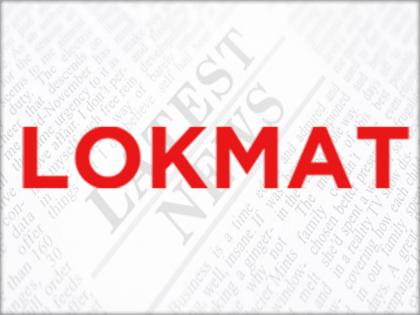Conclusions in 2nd UN report on J-K grossly incorrect, biased and heavily motivated: EFSAS
By ANI | Published: July 13, 2019 02:37 AM2019-07-13T02:37:15+5:302019-07-13T02:45:02+5:30
Netherlands-based think tank European Foundation for South Asian Studies (EFSAS) tore into the Second Office of the United Nations High Commissioner for Human Rights' (OHCHR) Report on Jammu and Kashmir, labelling its conclusions as "grossly incorrect," "heavily motivated," and "biased".

Conclusions in 2nd UN report on J-K grossly incorrect, biased and heavily motivated: EFSAS
Netherlands-based think tank European Foundation for South Asian Studies (EFSAS) tore into the Second Office of the United Nations High Commissioner for Human Rights' (OHCHR) Report on Jammu and Kashmir, labelling its conclusions as "grossly incorrect," "heavily motivated," and "biased".
The report, titled "Update of the Situation of Human Rights in Indian-Administered Kashmir and Pakistan-Administered Kashmir from May 2018 to April 2019," makes no attempt to address or rectify the various and momentous shortcomings that were obtrusive in the first report, according to EFSAS.
"This second report, rather, uses the same faulty methodology and analysis to arrive at similar conclusions that are grossly incorrect, at best, and heavily motivated and biased, at worst. That means that the update comes across as even triter and shorn of merit than the first report, whose credentials were highly dubious and suspect, to begin with," EFSAS stated in an official release.
The EFSAS release outlined the points given in its commentary titled, "Second OHCHR Report on Jammu and Kashmir perseverates with the same flaws as the first."
The commentary also slammed the terminology used in the second report.
"Furthermore, the terminology used in the update is as inappropriate and mischievous as that used in the first report. Legally and historically, the issue that the two OHCHR reports in question seek to deal with pertains to the undivided State of Jammu and Kashmir, and not Kashmir, as repeatedly mentioned in the reports," the release added.
The orgsation also highlights how the second report makes no efforts to rectify the "momentous shortcomings" of the first report. "The OHCHR's second (report) on Jammu and Kashmir after its specious and tendentious maiden effort last year, makes no attempt to address or rectify the various and momentous shortcomings that were obtrusive in the first report," it stated.
"Perhaps the most disquieting aspect of the update is its seeming willingness, even eagerness, to not just downplay the widely acknowledged primacy of Pakistan-sponsored terrorism in the Jammu and Kashmir narrative, but to actually condone and even justify the phenomenon. The update attributes disproportionately little blame to the terrorist outfits and refuses to recognise that any human right violation by security forces in Indian Administered Jammu and Kashmir is a direct consequence of Pakistan-sponsored terrorism that has been unleashed there," the think tank said.
It also criticised the orgsation's "narrow" view of the China Pakistan Economic Corridor (CPEC) which glosses over the "political and strategic dimensions and the illegality" of the project.
"EFSAS also in its commentary explains that the OHCHR update views the China Pakistan Economic Corridor (CPEC) under the narrow confines of 'business and human rights'. It completely glosses over the political and strategic dimensions and the illegality of the CPEC, which is being constructed by a third country, China, through Jammu and Kashmir, a territory disputed between India and Pakistan. The CPEC directly impacts the human rights and future prospects of the people of Gilgit Baltistan, which is an integral part of Jammu and Kashmir," the release stated.
EFSAS also outlined that there is no mention in the recommendations for Pakistan in the update of the need for it to stop sponsoring cross-border terrorism, which is the root cause of all human rights issues in Jammu and Kashmir.
"Quite obviously, the OHCHR either does not consider sponsorship of terrorism and the consequent bloodshed to be related to human rights, or views it as being inconsequential," it added.
"EFSAS concludes its commentary that the lacunae in the OHCHR update is not meant to detract in any way from the imperative of ensuring the human rights of the entire population of Jammu and Kashmir across both sides of the Line of Control. However, any move by the OHCHR in this direction must necessarily be unbiased, serious and well thought out, which the two reports released so far have certainly not been," the release read.
"The lack of seriousness and thought is evident from the fact that while the first report came across as being aimed at glorifying a slain terrorist, Burhan W, with his death constituting the starting point of that report, the update was issued to coincide, whether by design or by oversight, with the third death anniversary of Burhan W on July 8," it said, slamming the orgsation's move.
"It is not without reason that the anti-terror intent and conviction of the OHCHR has been questioned in the preceding paragraphs. An august institution such as the OHCHR ought to be able to anticipate the impact that its actions would have going forward. In the case of its two reports on J&K, coming generations of gullible youth would be lured into terrorism by seasoned, blood-thirsty radicals by quoting the example of Burhan W. The youth would be told that the path of terror chosen by W had made him so powerful, so important, that the highest body on Earth, the UN, had been compelled to come out with two reports acknowledging his contribution," the release further said, tearing into the UN body's report.
"Will the OHCHR be happy to live with terrorists being recruited on account of its carelessness and lack of foresight?" the EFSAS lastly questioned, wrapping up its criticism of the second report released by the OHCHR.
( With inputs from ANI )
Open in app